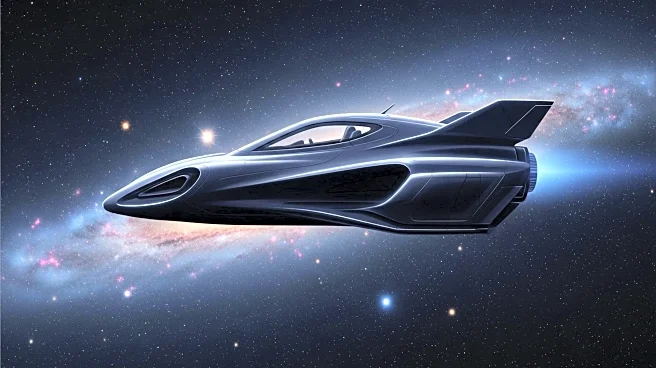What is the story about?
What's Happening?
The U.S. Space Force has awarded a $78.25 million contract to Kent-based Blue Origin to expand space vehicle processing capacity at Cape Canaveral Space Force Station in Florida by 2028. This initiative aims to enhance Blue Origin's capabilities to operate more efficiently and support a higher launch cadence to meet customer needs. The contract was announced on October 7, 2025, and is part of a public-private partnership to cost-share with commercial industry. Blue Origin, owned by Amazon founder Jeff Bezos, operates Launch Complex 36 at Cape Canaveral, where it launched its New Glenn rocket's initial flight in January and is preparing for a second launch. This contract follows a $190 million NASA contract awarded to Blue Origin in September to land a science rover on the moon's South Pole region by late 2027.
Why It's Important?
The contract awarded to Blue Origin is significant as it reflects the U.S. Space Force's commitment to meeting both national security and commercial launch requirements. By expanding the space vehicle processing capacity, the Space Force aims to address the current limitations of satellite processing facilities at the Florida spaceport, which have struggled to keep up with the increasing number of flights. This development is crucial for maintaining the U.S.'s competitive edge in space exploration and security. The partnership with Blue Origin also highlights the growing collaboration between government and private industry in advancing space technology and infrastructure.
What's Next?
The expansion of space vehicle processing capacity at Cape Canaveral is expected to be completed by 2028, allowing for a higher launch cadence to meet customer needs. Blue Origin's ongoing projects, including the preparation for the second launch of its New Glenn rocket, will benefit from the enhanced facilities. The collaboration between the U.S. Space Force and Blue Origin may lead to further contracts and partnerships aimed at advancing space exploration and security. Stakeholders in the space industry, including other commercial launch providers, may respond by seeking similar partnerships to enhance their capabilities.
Beyond the Headlines
The expansion of space vehicle processing capacity at Cape Canaveral may have broader implications for the space industry, including increased competition among commercial launch providers. The collaboration between the U.S. Space Force and Blue Origin could set a precedent for future public-private partnerships in space exploration. Additionally, the enhanced facilities may attract more international interest and investment in the U.S. space industry, further solidifying the country's position as a leader in space technology.

















